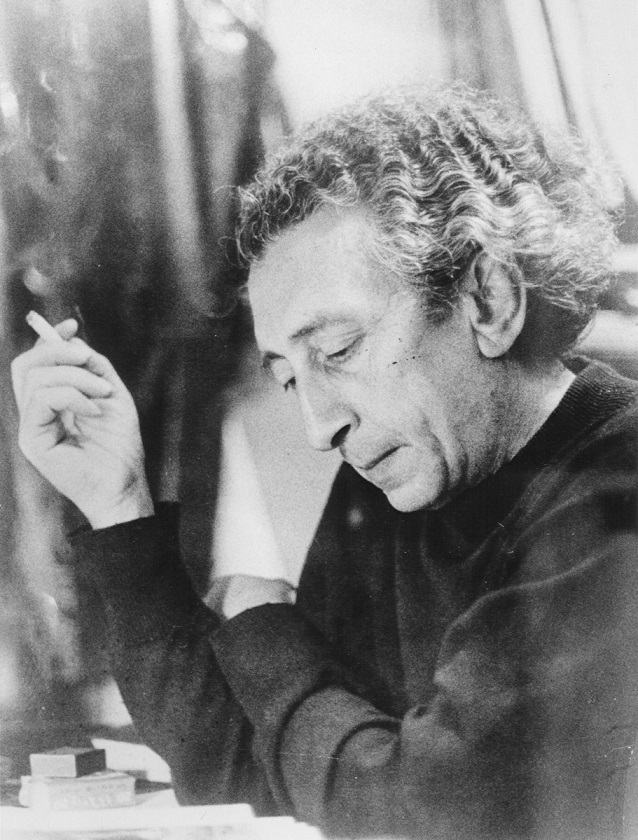
Loss and renewal, the lot of victim and resistance, extermination and rebirth: these are the themes the writer Abba Kovner (1918-1987) wrote about from his own experience.
The first biography of the poet and partisan leader written by Dina Porat won the National Jewish Book Award for explaining history and bringing it to life.
Kovner was born in Oshmyani on March 14, 1918, a Lithuanian town in Belarus about 50 kilometers from Vilnius. After making aliyah to Israel following the war, he was often presented as a poet and prose writer, but Litvaks remember Kovner as a partisan leader who went on to help found the modern state of Israel.
In 1927 his parents moved the family to Vilnius and Kovner attended the Tarbut Gymansium. This building now houses the Lithuanian Jewish Community. He received a Jewish education there, including Hebrew and exposure to modern literature, and began to write poetry while in high school. In 1939 he was admitted as an auditor of classes at the Arts Faculty of Vilnius University. He engaged in illegal Zionist activities during the Soviet occupation of 1940. He became leader of the Ha-Shomer Ha-Tzair Zionist youth movement.
He found temporary haven with several other young men at a monastery when the Nazis occupied Vilnius and set up the ghettos there in 1941. His fear for the fate of the nuns as well as guilt over the murder of the love of his youth ate away at him until he decided to enter the ghetto, where he became a leader of the FPO, the united partisan organization, which included various youth movements and political parties as equal members. By January of 1942 he realized the Jews were being systematically murdered, and that the Nazis were exterminating Jews all over Europe. He wrote a manifesto, a call to armed resistance, in Yiddish. It began with the line “Let us not go like lambs to the slaughter!” Even much later in life he rejected the notion Jews had been passive in the face of their own extermination in the Holocaust. FPO supreme leader Yitzhak Vitenberg personally asked Kovner be made his successor when he turned himself in to the Nazis for torture and execution.
One of the enduring controversies surrounding Kovner is the plan by him and other Jewish fighters in the post-war Nakam organization, aka Dam Yisrael Noter, to murder up to 6 million Germans in revenge for the Holocaust.
Kovner was also part of the Brikha organization smuggling Jews from Europe into Mandate Palestine. He travelled there “illegally” in 1945 and met with Ben-Gurion and Weizmann. The British arrested him when he tried to return to Europe and he was jailed in Cairo.
Kovner joined the Haganah in December 1947, and soon after Israel declared independence in May 1948 he became a captain in the Givati Brigade of the IDF. During the Israeli War of Independence he became known for his “battle pages” with the heading “Death to the invaders!”, which contained news from the Egyptian front and essays designed to keep up morale.
In 1961 Kovner testified at the trial of the Nazi Adolf Eichmann in Jerusalem.
From 1946 to his death, Kovner was a resident of the Ein Ha-Horesh kibbutz where he continued to write. He won the Israel Prize in 1970.

